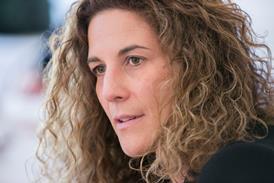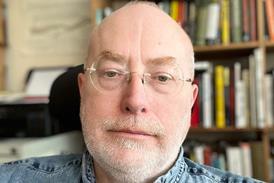- University Hospitals Association says members face pressures on their research and education work
- Chair Bob Bell says there is still a perception that teaching hospitals are “fat [and] rich”
- Brexit, AI and big data pose further challenges to the sector
University hospitals face bias from national leaders, and growing challenges from tightening funding and Brexit, their trade body has said.
The University Hospitals Association – formerly the Association of UK University Hospitals and relaunched under its new name today – warned the pressures could affect its members’ triple mission of providing services, doing research and training the next generation of clinicians.
Chair of the membership organisation Bob Bell, who is also chief executive of the Royal Brompton and Harefield Foundation Trust, told HSJ: “In difficult times it can be necessary for NHS leaders to concentrate on staying afloat, which is when focus can drift away from areas like research and education.
“But it’s exactly these areas that are the source of change and innovation in the NHS. As their natural home, university hospitals must stand up and make the case for research and education being central to healthcare’s future.”
He added: “Brexit has deeply affected our ability to recruit and retain, we probably feel that more than you would in district general hospitals.”
Mr Bell also said the “centre” of the NHS – NHS England, NHS Improvement, and the Department of Health and Social Care – had fewer people in it who had come from a university hospital background now than it did 10 years ago, so there was less understanding of the sector.
“Increasingly, I am thinking that people in the centre think we are fat, rich,” when, he said, that was not the case.
Mike Sexton, chief finance officer of University Hospitals Birmingham FT, chairs the UHA’s finance director forum. He told HSJ the complexity and expense of the specialist work carried out by the teaching hospitals was not well understood by the centre. Pressure was further increased by the growing number of people surviving longer with difficult-to-treat conditions. He said these were “great successes”, but the additional cost needed to be factored into funding allocation assumptions.
He said UHA members wanted to see “equity and transparency” around central funding decisions because the perception of failure being rewarded made it difficult for member organisations to encourage staff to go the extra mile. He said in recent years the “playing field had been fairly level” although members were looking at the 2019-20 settlement with interest .
Mr Bell said university hospitals could also face problems with their higher education partners over which institution paid for what, with senior staff often being joint appointments between a trust and a university.
Last year, NHS Improvement withheld its support from the development of a new haematology institute at King’s College Hospital FT in London because the organisation was in special measures.
UHA chief executive Katie Petty-Saphon said the number of medics taking up clinical academic posts was falling and a retirement bulge was expected soon.
Mr Bell said emerging issues for the sector included AI and big data, which posed questions for university hospitals as both large generators and users of patient data.
Source
Interview
Source Date
January 2019


























12 Readers' comments